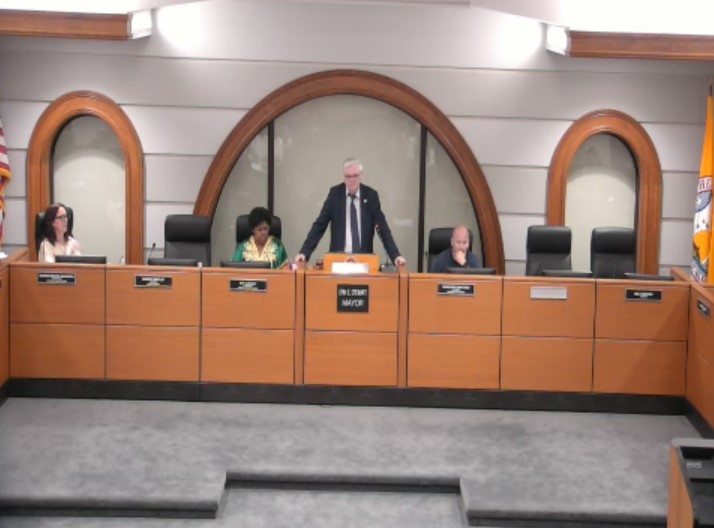
School Funding, Emergency Housing, Libraries and Infrastructure Concerns Raised by Residents at City Council Budget Hearing
At its public hearing on the city budget the City Council heard residents’ concerns about the need for greater funding for city schools, emergency housing, completion of the Allen Street project and the Public Library.
Public Library Library Director Viktor Sjöberg and others spoke in favor of additional funding for the New Britain Public Libary. Sjöberg cited the work of the Library to expand programs for city residents and noted that additional funding is needed to make that important work possible.
Other residents, including some speaking on different areas of the budget, also supported the Library budget.
Education was also another important area of discussion by residents.
Ann Speyer, citing flat funding that has been provided to New Britain schools, talked about the importance of providing a quality education for schools, and about supporting the work of teachers in providing that education.
Mayor Erin Stewart (R) has proposed no increase in operating funds for New Britain’s schools for the upcoming budget year that begins in July, making her total city operating allocations for city schools over her twelve years as mayor just 3.48% higher in total – an average increase per year of only 0.29% – and $29.8 million less school operating budget since 2014 with inflation taken into consideration
Alicia Strong, director of the New Britain Racial Justice Coalition, spoke in favor funding for New Britain’s schools. Saying the ambiguous “non operating” school money in the mayor budget should, instead, go to the school operating budget.
As in the past, Stewart’s new budget plan includes funding in a nebulous “non-operating” budget line under “Education Department”. Since the city has been forbidden under state law from cutting school operating funding from one year to the next, calling it “non-operating” is widely considered an attempt by Stewart to sidestep both this rule and to assert power over the Board of Education beyond what state law allows by granting the money on a discretionary basis. Stewart proposed $2,646,191 in this line, which is $1.1 million more than this year, but $2.2 million less than the 2024 budget year.
Other residents also talked about the importance of the school operating budget, to fund teachers in classrooms, asking to move the non-operating funding to the school operating budget.
Gayle Sanders-Connelly spoke skeptically about the “non-operating” school funding, speaking in support of school funding.
Strong was also one of a number of residents who spoke in favor of emergency housing funding. Strong asked that a city fund and program be created to provide emergency housing.
Another resident testified about how his house burned down recently and how he saw the importance of emergency support for housing for people more at-risk than himself.
Another resident spoke in favor of fully funding the Allen Street project to alleviate mounting concerns about flooding caused by drainage infrastructure in need of improvements affecting the neighborhood between Allen Street and Roxbury Road near CCSU neighborhood. That neighborhood has been facing serious problems with flooding because of overdue infrastructure improvements.
Last week, the Council approved a plan agreed to by Stewart to allocate $2 million toward the $13.9 million project.
Next Tuesday, May 6th, as well as Wednesday and Thursday, all at 6:00pm in City Hall, the Council is to hold committee meetings to discuss the budget.



